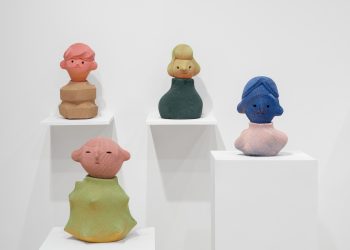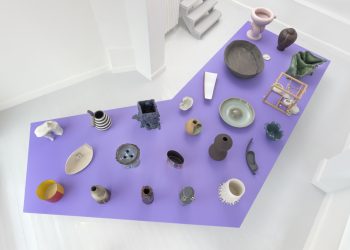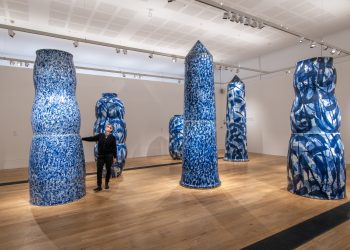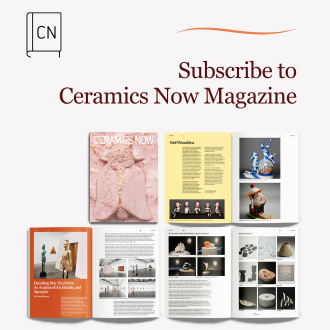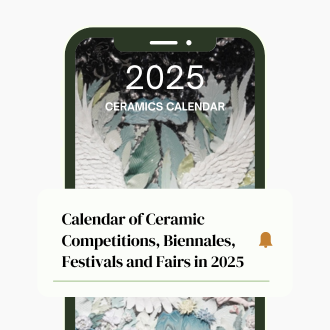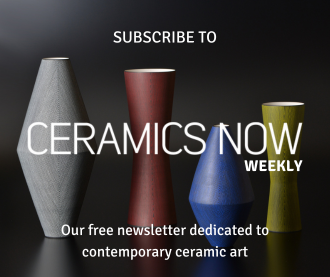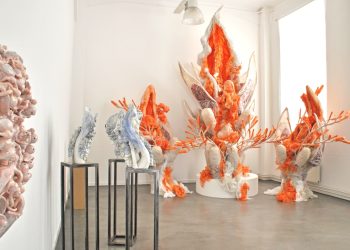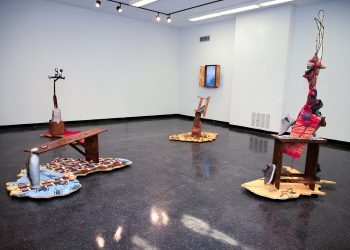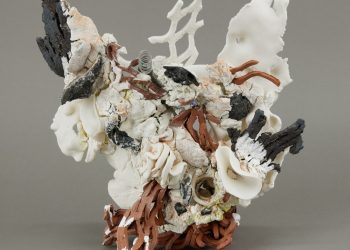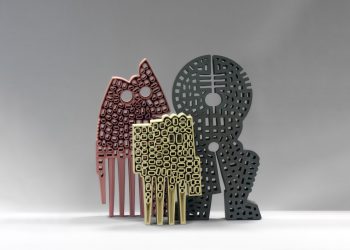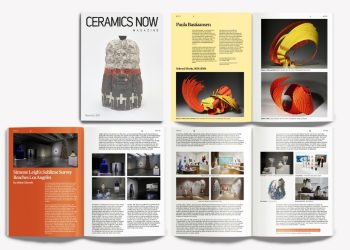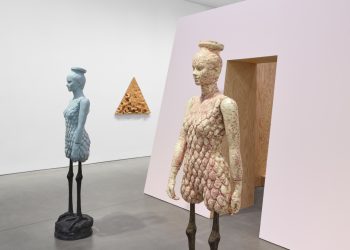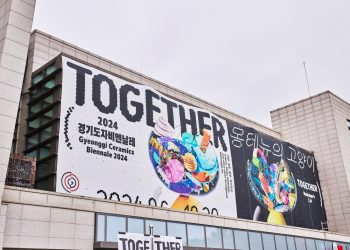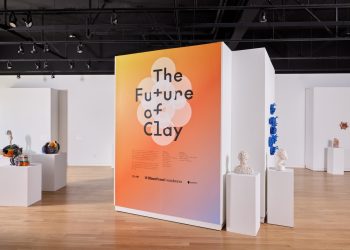
Keisho-Ha – A New Materialism and the Yufuku Aesthetic / Yufuku Gallery, Tokyo
December 5-21, 2013
Contemporary Japanese art in the 21st century is heading in a new and unique direction. Artists are using traditional techniques to create not craft, but objects of self-expression that are very much a type of sculpture that can change space itself. Such artists are pushing the boundaries of their respective mediums to new heights, using new techniques and materials that have not been used before.
Yet when one takes a step back and views today’s world of contemporary art, it is widely seen that concepts are allowed to run free, whilst the importance of technique and actual artistry are left behind and abandoned. Throughout art history, one can consistently observe an element of craftsmanship in fine art, from the statues of Greece to the frescoes of Italy, from the ink paintings of China to the folding painted screens of Japan. Even in expressionist and abstract painting, the works of Monet, Van Gogh, Picasso, Pollock, Rothko, Bacon and Freud were instilled with an element of technique as a priori. Craftsmanship was a given, but was not the sole emphasis. Technique was simply needed to realise the form of self-expression that they envisioned in their mind’s eye. Technique was not a starting point, but was a necessary means to an end. Likewise, I find that the artists affiliated with Yufuku are not technique-oriented artists, even though many of them are renowned for their technical prowess. Rather, for artists such as Shigekazu Nagae and Ken Mihara, the technique is simply a requirement needed for them to create the clay sculptures that they wish to manifest. Technique, again, is a given, and is only a means to an end.
If taken in this light, I find that the term craft or the Romanized Japanese word Kogei (synonymous with craft) is gravely inadequate in fully expressing what these contemporary Japanese artists are actually creating. Their works are not craft works, and they are not craft artists. Instead, they are emancipating their art from the fetters of language and from the limitations imposed by the element of categorisation. Such is the progressive moment in today’s Japan. I call them the Keisho-Ha (the School of Form), and can be also expressed as a New Materialism, wherein technique and material are chosen specifically to create sculptural works imbued with self-expression. This is, in a sense, a Return to Innocence, or a revival of artistry within art.
Today’s Japan is a world where craft does indeed exist vibrantly, and craft is very much alive and well in the likes of the Traditional Art Crafts Exhibition and the Living National Treasure System, along with potters and makers of mass-produced vessels for everyday life. But one cannot continue to categorise the makers of everyday utilitarian tea cups and bowls with the same terminology and language as artists wielding the very same techniques to create works that are worlds apart from these everyday objects. A different expressive process is taking place, and the Japanese are at a loss for properly contemplating and understanding this new movement. To lazily lump everything together as craft or kogei was simply out of convenience, an excuse for the Japanese to stop thinking about the subject that was so obviously unique to their culture, and is so vastly different from traditional Western connotations and demarcations of art and craft.
“The limits of our language are the limits of our world.” Yet if such is true, then why not expand the boundaries of our language and properly express what is happening in our world today?
Such is the importance of language and ontology.
The artists assembled in this exhibition are a representation of this new movement in today’s Japan, a movement that Yufuku finds its lifework and reason for existence. This is art. And they are the Keisho-ha. Such is a true return to innocence, an emancipation of art for the sake of art.
Wahei Aoyama, Owner and Director of Yufuku Gallery
Exhibited artists: Ken Mihara, Shigekazu Nagae, Atsushi Takagaki, Takahiro Yede, Naoki Takeyama, Niyoko Ikuta, Shunichi Yabe, Masaaki Yonemoto, Takafumi Asakura
Gallery hours: Tuesday to Saturday, 11 am – 6 pm. Closed Sun/Mon. Final day closes at 4 pm.
CONTACT
gallery@yufuku.net
Tel. 81-3-5411-2900
YUFUKU Gallery
Annecy Aoyama 1F
2-6-12 Minami-Aoyama
Minato-ku, Tokyo 107-0062
Japan
www.yufuku.net
Follow the gallery on Facebook.
Above: Shigekazu Nagae, Forms in Succession, 2011, Slip-cast porcelain object, 39x35x28 cm.
> More exhibitions / View the list of exhibitions




